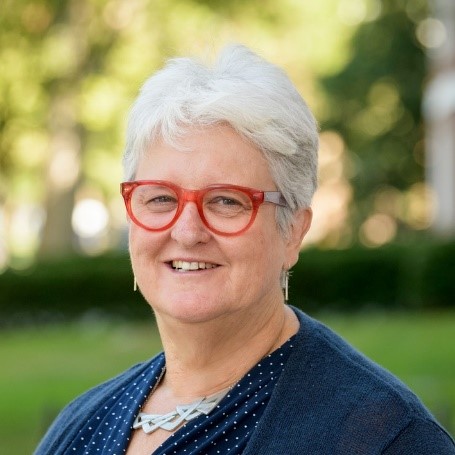Webinar - Maintaining Shared Auto, Transit, Bike and Pedestrian Facilities

Register now in this link for this webinar: Fri 24 March 2022 1:00 PM - 2:00 PM AEDT
Guest Speaker - Professor Sue McNeil
Shared use facilities, such as Complete Streets, are intended to encourage transit usage, and non-motorized modes of travel while accommodating auto travel. Guidelines are readily available for the design of such facilities, but little attention has been paid to supporting multi-modal travel during maintenance and reconstruction. Given the different maintenance needs this presentation explores the issues involved in accounting for the disruption to all modes, appropriate performance measures and the strategies for maintenance decision-making and scheduling over the lifecycle that recognize all users in the context of a socio-technical system. The strategies also build on principles of asset management.
Describing shared use facilities as a socio-technical systems recognizes the physical, functional, intentional, and normative relationships between actors and technical elements, and identifies the variety of actors including different types of users (for example, mobility impaired users) and distinguishes between owners and operators. Using the construct of socio-technical systems and a review of over seventy potential performance measures identified from the literature, performance measures are identified to capture the performance of the system during the maintenance and operation phase of the lifecycle. Performance measures are reviewed in terms of their connection to objectives (such as accessibility, state of good repair, serviceability, mobility, reliability, and safety) and whether the measures are responsive to maintenance actions and the relationships among the elements of the socio-technical systems. These performance measures can then be used to support decision making either through target setting or optimization.
The application of these performance measures is demonstrated using a case study based on the business district of Newark, Delaware. The data needed to support the measures is also reviewed in this context. The case study highlights some of the challenges in assembling the relevant data that represents performance at different scales (for example, community, link or segment, signal phase, or curb cut) and over time. The research shows the value of using specific, measurable, achievable, relevant, and time-bound performance measures to make maintenance decisions for shared use facilities.
Sue McNeil is Professor of Civil and Environmental Engineering and Public Policy and Administration and Visiting Professional Fellow at rCITI in the School of Civil and Environmental Engineering at University of New South Wales. She is also a Core faculty member in the Disaster Research Center at University of Delaware. She is a former Department Chair, and Director of the Disaster Science and Management graduate program and the Disaster Research Center. Her research and teaching interests focus on transportation asset management. Her most recent research includes the impact of natural hazards and climate change on physical infrastructure and asset management with emphasis on resilience.




